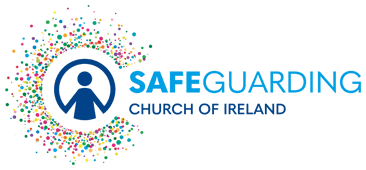ROI Adult Safeguarding
SECTION A: Introduction
Statement of Commitment to Adult Safeguarding
The Church of Ireland Adult Safeguarding Code of Good Practice applies to all bishops, clergy, staff and volunteers but especially those who have regular contact with adults who may be more at risk of harm or abuse because of their personal or life circumstances.
The guidance applies to all aspects of ministry in the Church of Ireland whether within a church building or within parishioners homes. It is the responsibility of everyone in the Church of
Ireland to ensure that adults at risk of harm due to their personal characteristics and / or life circumstances are not left at risk of abuse. Church organisations have a duty to promote the safety and welfare of vulnerable persons. The Church of Ireland takes seriously all concerns, allegations, suspicions and disclosures of abuse and requires such to be reported to the statutory authorities, according to the requirements of the Regional Adult Safeguarding Policy.
All adults have a fundamental right to be respected, nurtured, cared for and protected from harm or the risk of harm. These basic rights are embedded in both our gospel values and within international and domestic laws. Concerns and allegations, historical and current, must be taken seriously, swiftly reported, appropriately recorded and dealt with according to clear procedures as required by the law.
Anyone who has suffered abuse should receive a compassionate and just response and should be supported to engage with the relevant statutory organisations where they can report allegations of abuse. In addition, victims and survivors should be offered pastoral care to help rebuild their life. We must ensure that appropriate recruitment and vetting procedures are in place so that all staff and volunteers holding positions working with adults at risk are carefully selected, screened, trained and supervised in accordance with best practice guidelines. Codes of conduct provide clear guidelines on what is and what is not acceptable behaviour.
Within the church community there are a variety of fellowship meetings, recreational, social, and sporting activities available to adults. Those with responsibility in the Church of Ireland must assure themselves that adults who participate in their organisations do so safely and in an environment which promotes best safeguarding practice.
Safeguarding Vulnerable Persons at Risk of Abuse (HSE, 2014) places a responsibility on organisations to uphold the rights of all adults to live a life free from harm from abuse, exploitation and neglect. In conforming to this regional policy, the Church of Ireland commits itself to promoting a culture of zero-tolerance of harm to adults. This Code of Good Practice therefore aims to focus on the recognition of adults who may be at risk and the circumstances which may increase risk; knowing how adult abuse, exploitation or neglect manifests itself;
and being willing to report safeguarding concerns. This extends to recognising and reporting harm experienced anywhere, including in the person’s own home, in any care setting, in the community, and within organised community or voluntary activities including any activity run in or by the Church.
This Church of Ireland Code of Good Practice provides a framework for those participating within the life of the Church on how to recognise, respond and report any concerns of an adult safeguarding nature. This Code of Good Practice sits alongside Safeguarding Trust and Dignity in Church Life Charter to support and protect all those participating within the life of the Church of Ireland as clergy, employees or volunteers.
Scope of the Policy
The Church of Ireland is committed to promoting and supporting an environment where everyone is able to worship and participate in the life of the Church in safety. Therefore the Church will:
- Never commit, condone or stay silent about any form of abuse of an adult at risk
- Robustly and consistently implement the safeguarding policy and procedures and play its part
in supporting anyone who may be affected by abuse
- Promote a culture which listens to adults at risk
- Ensure that when concerns are raised they are taken seriously and dealt with appropriately
- Raise awareness within the church that there is no excuse for abuse of adults at risk including
domestic and sexual violence
- Signpost adults at risk to services to enable them to access information or specialist support
- Appropriately recruit, train and support all those in a position of trust
This Code of Good Practice sets out the context for implementing Adult Safeguarding; the types and nature of abuse; the role of the Safeguarding Board; recruitment and vetting procedures; reporting of allegations and issues of concern.
Church of Ireland Safeguarding Board
The Church of Ireland Safeguarding Board is authorised by the Standing Committee of the General Synod to ensure that those within church ministry are aware of their special duty of care towards Children and Adults at Risk and therefore encourage a culture of collective responsibility to work in partnership with other statutory, community and voluntary organisations.
The Safeguarding Board will promote human rights which are embedded in both our gospel values and within international and domestic laws to protect those at risk of harm.
The Safeguarding Board is committed to learning from experience and by a process of continuous improvement to monitor and challenge the effectiveness of the Church of Ireland’s safeguarding arrangements.
The Safeguarding Board is in place to oversee the implementation and review of this policy. This is a living document and will be reviewed every second year and amended as required by the Safeguarding Board. Any amendments due to the review will be submitted to Standing Committee for approval.
Bishops and Dioceses
Each bishop and diocese is required by the Constitution of the Church of Ireland to ensure that the Adult Safeguarding Code of Good Practice is implemented and adhered to throughout the Church.
Diocesan Councils through their Secretaries will be responsible for issuing to the Honorary Secretary of each select vestry, a standard form which will be completed and returned by the select vestry, confirming on an annual basis that the Adult Safeguarding Code of Good Practice is being implemented by the select vestry in each parish. This is the declaration of compliance.
Diocesan Councils will be required to report that every parish has completed the declaration of compliance on an annual basis (usually by the end of June) to the Safeguarding Board.

